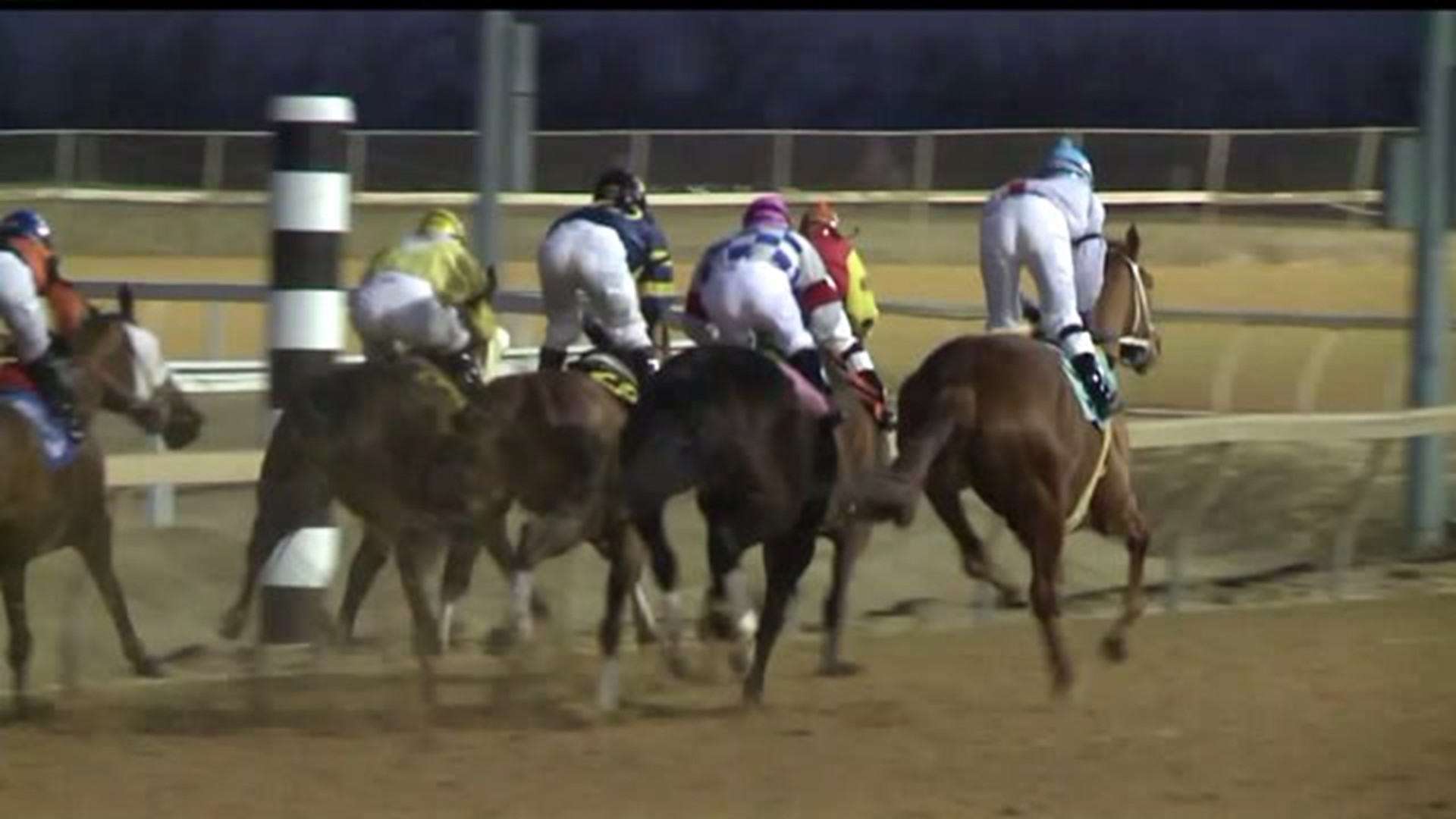This weekend American Pharoah will try to do what no race horse has done in decades: win the Triple Crown.
While people across the country watch to see if history is made, some Congressmen are proposing major changes that could impact the sport dramatically.
Central Pa. Rep. Joe Pitts (R- PA 16th) says it's time to stop using drugs on horses on race day. He and Sen. Ton Udall (D-NM) recently introduced legislation aimed at sending a message to people in the horse racing industry.
The legislation would repeal the Interstate Horseracing Act of 1978, which allows for off-track and online wagering. The legislators say about 90 percent of the $11 billion wagered on racing comes from this type of betting in the states that allow for it.
"We wanted to escalate the pressure," said Pitts.
Eric Hamelback heads up the National Horsemen's Benevolent and Protective Association. The group represents owners and trainers across the country.
He says Pitts's plan "would in essence truly hurt our industry to the point of some race tracks in general couldn't survive."
The National Thoroughbred Racing Association went as far as to call the bill "a shameless publicity stunt."
"It's not a stunt. it's a strategy. and, we understand how to get their attention. But, we want them to know that Congress gave them this sweetheart deal in 1978 which could be revoked," said Pitts.
Ultimately, Pitts wants to end the doping of horses on race day and further crack down on cheating.
He points out the U.S. is among the minority of countries that allow race-day medications for horses. He fears that's leading to more horses running too hard and dying on the tracks.
"Since 2008 when we had the first hearing, there have been some 7,000 horses killed on race tracks. I mean, it's serious," said Pitts.
During the Kentucky Derby, ESPN reports a horse named Mubtaahjj was the first in a decade to run the race without being injected with a drug called Lasix. It's a medication meant to reduce bleeding in horses' lungs and is approved for use on race day.
"The medications are masking the pain," said Pitts. "We just want them to know we're serious about this."
Pitts says he's grown frustrated by the lack of progress on reforming medication rules. Some states have taken steps to improve oversight. However, he feels there should be consistent nationwide standards.
In the last year-and-a-half, trainers, veterinarians and an employee at Penn National Race Course in Dauphin County were all indicted on various charges including illegally drugging horses.
"The media blurs the line between therapeutic usage and what we call cheaters," said Hamelback. "We are a very highly regulated, highly tested industry."
Last week, Rep. Paul Tonko (D-NY) announced a plan to create nationwide standards for drug use in horse racing and give oversight to the U.S. Anti-Doping Agency.

